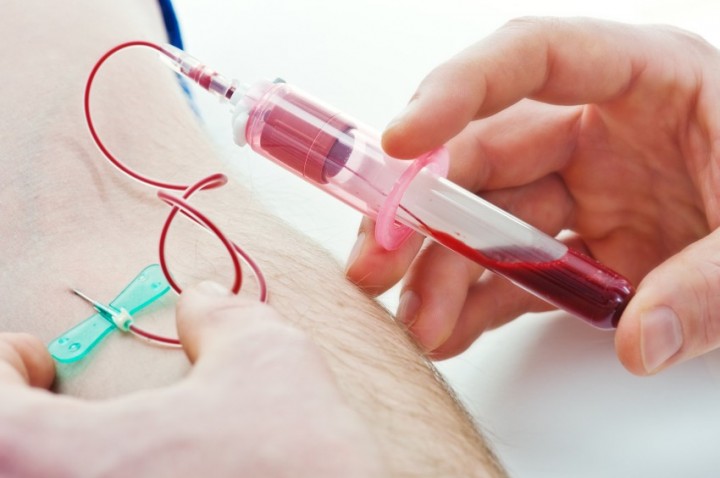Mastering PCC Phlebotomy: your Essential Guide to Certification,Skills,and Career Advancement
Introduction
If you’re considering a rewarding career in healthcare,becoming a Certified Phlebotomy Technician (CPT) through the Phlebotomy Certification Council (PCC) is an excellent choice.Mastering PCC phlebotomy not only equips you with vital skills for drawing blood safely and efficiently but also opens doors to numerous career opportunities within hospitals, clinics, and laboratories. This extensive guide will walk you through the essentials of PCC phlebotomy, including certification pathways, core skills, practical tips, and how to leverage your certification for career growth.
Understanding PCC Phlebotomy Certification
What Is PCC Phlebotomy Certification?
The PCC (Phlebotomy Certification Council) certification signifies that a healthcare professional has met specific standards of knowledge, skills, and competence in performing blood draws. This certification is recognized nationally and demonstrates a standard of excellence in phlebotomy practice.
Eligibility Requirements
To be eligible for PCC phlebotomy certification, candidates typically need to meet the following criteria:
- Minimum age of 18 years old
- high school diploma or GED equivalent
- Completion of a recognized phlebotomy training program (usually 40 hours minimum)
- Practical experience through supervised blood draws (varies by program)
Certification Process
The process involves passing a certification exam that tests your knowledge and skills related to:
- Anatomy and physiology
- Proper blood collection techniques
- Patient interaction and safety protocols
- Handling and processing specimens
- Infection control and safety standards
Preparation for the PCC exam is crucial-consider enrolling in an accredited phlebotomy training program and using practice exams to boost your confidence and knowledge.
Essential Skills for Mastering PCC Phlebotomy
Core Competencies
To excel in PCC phlebotomy, certain skills are essential:
- Patient Communication: Comforting and explaining the procedure to reduce patient anxiety.
- Proper Vein Selection: Identifying suitable veins for blood collection.
- Venipuncture technique: Performing blood draws with precision and minimal discomfort.
- Infection Control: Maintaining sterile environments and following safety protocols.
- Specimen Handling: Properly labeling and transporting samples for laboratory analysis.
Tips for Developing These skills
- Practice under supervision to gain confidence.
- Learn to read veins effectively through simulation exercises.
- Maintain excellent hand hygiene and follow safety guidelines.
- Stay updated on the latest phlebotomy techniques and best practices.
Benefits of PCC Phlebotomy Certification
Getting certified through PCC offers numerous advantages that boost your professional profile:
- Enhanced employment opportunities in diverse healthcare settings.
- Higher earning potential compared to non-certified counterparts.
- Recognition as a competent and qualified healthcare professional.
- Opportunities for continuing education and specialization.
Practical Tips for Aspiring PCC Certified Phlebotomists
Success Tips
- Invest in quality training: Choose accredited programs that prepare you for the PCC exam.
- Practice, practice, practice: Gaining hands-on experience is key to proficiency.
- Stay organized: Keep track of your training hours and clinical practice.
- Prepare thoroughly for the exam: Use practice tests and review materials diligently.
- Develop soft skills: Compassion and effective communication are vital in patient care.
Job search Strategies
- Build a strong resume highlighting your PCC certification and clinical experience.
- Network with healthcare professionals and join relevant associations.
- Leverage online job boards and healthcare staffing agencies.
Case Studies and First-Hand experiences
Many successful phlebotomists share inspiring stories of how PCC certification transformed their careers.As a notable example, Jane Doe, a certified phlebotomist, emphasizes that obtaining her PCC certification opened doors to travel healthcare assignments and supervisory roles. Her experience underscores the importance of continuous learning and professional advancement in phlebotomy.
Career Advancement Opportunities in phlebotomy
Once certified, there are multiple avenues to advance your career:
| Career path | Potential Roles | Additional Certifications |
|---|---|---|
| Entry-Level | Phlebotomy Technician | – |
| Mid-Level | Senior phlebotomist, Led Technician | Advanced Phlebotomy Certification |
| Specialized | Paediatric Phlebotomist, Forensic Phlebotomist | specialty Certifications |
| Management | Phlebotomy Supervisor, Laboratory Manager | bachelor’s Degree in Healthcare Management |
Conclusion
Mastering PCC phlebotomy is a promising step toward a fulfilling healthcare career. With the right training, certification, and skills, you can become a sought-after professional in blood collection and laboratory support. Remember, continuous learning, compassionate patient care, and professional development are key to advancing in this dynamic field.Embrace the journey,and leverage your PCC certification to unlock new career opportunities in the vibrant world of healthcare.
